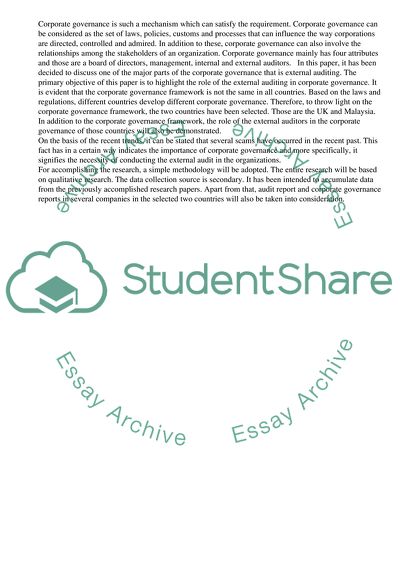Cite this document
(The Role of the External Auditors in the Corporate Governance Term Paper, n.d.)
The Role of the External Auditors in the Corporate Governance Term Paper. Retrieved from https://studentshare.org/management/1747721-audit-and-assurance
The Role of the External Auditors in the Corporate Governance Term Paper. Retrieved from https://studentshare.org/management/1747721-audit-and-assurance
(The Role of the External Auditors in the Corporate Governance Term Paper)
The Role of the External Auditors in the Corporate Governance Term Paper. https://studentshare.org/management/1747721-audit-and-assurance.
The Role of the External Auditors in the Corporate Governance Term Paper. https://studentshare.org/management/1747721-audit-and-assurance.
“The Role of the External Auditors in the Corporate Governance Term Paper”, n.d. https://studentshare.org/management/1747721-audit-and-assurance.


